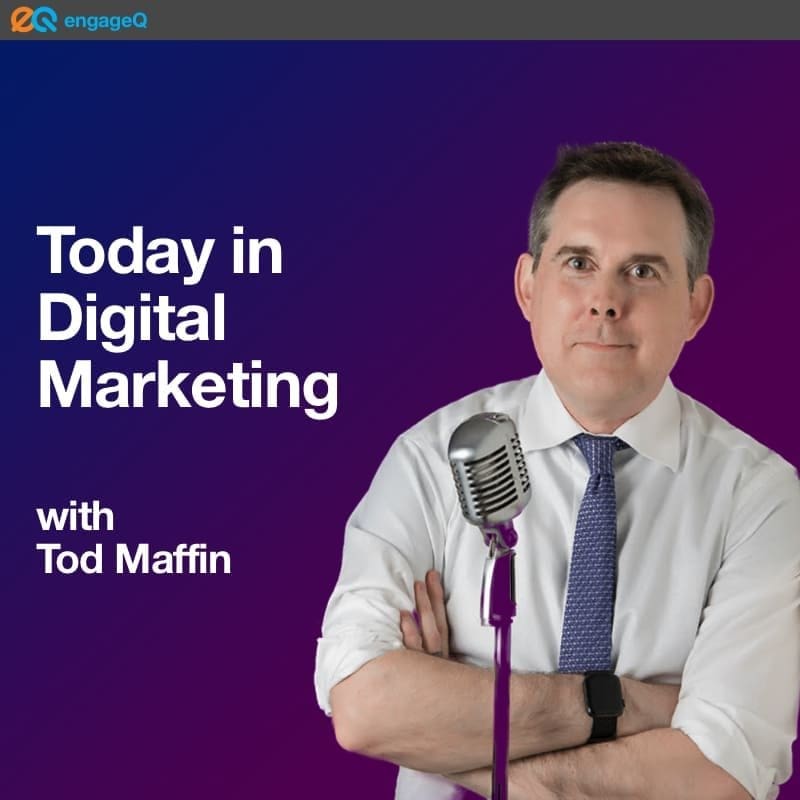An aggressive U.S. bill aimed at reining in conflicts of interest of digital advertising platforms could break up Google's ad business.
The Competition and Transparency in Digital Advertising Act is backed by Republicans and Democrats.
Under the bill, companies that process more than $20 billion in digital advertising transactions annually would be prohibited from participating in more than one part of the digital advertising ecosystem.
Through Google's labyrinth of business tools, companies are able to buy and sell ads, as well as auction houses, or exchanges, where transactions happen in split seconds. This legislation would prevent Google from remaining in those businesses.
Analysis: Jyll Saskin Gales
I asked our Google Ads whisperer Jyll Saskin Gales, who spent six years at Google Ads and now runs a busy ads training business, to weigh in.
So Jyll, this legislation targets companies who are on more than one side of the digital advertising ecosystem. I get that Google SELLS ads, but how are they on the BUYING side too?
JYLL: The best way to think about it is as it relates to publishers and the AdSense network, as well as advertisers with Google Ads. So if you as a business want to buy display ads, those ads get placed on millions of websites around the world that use a different product called Google Adsense to monetize. So if you're a news organization, and you want to have banner ads on your websites that you can make income, you can do that using one of Google's products. So that's one way in which Google feeds kind of services, both sides of the marketplace.
Why do you think media, when they've been reporting on this today, have focused on the way this would impact Google. Does Facebook's ad marketplace, and I'm thinking in particular Facebook Audience Network, not operate in the same way?
JYLL: Facebook does operate in the same way — all the large tech companies you think of operate in the same way. And then there are point players as well. [Companies like] AdRoll, who are these remarketing networks, do the exact same thing. But of course, the larger companies that are more household names like Google or Meta will get the most attention here.
Overall, what are your thoughts on the impact of this on both the companies, and on we digital marketers?
JYLL: I agree with Google's public statements on this issue. I think this is going to hurt advertisers and specifically small business owners. Google, and other companies, having access to all this data on both sides of the marketplace, they're able to create really valuable audiences and great targeting capabilities for business owners. We know that we're moving into a world where the more data you have, the more machine learning you can do, and thus the more effective your ads can be. So if these capabilities are taken away, larger companies that have big budgets can afford to find their own workarounds, but small businesses really can't. So I think small businesses especially would be most hurt by this legislation.
Jyll's on Twitter as @jyllsaskingales.
Google's Statement
The public statement Jyll refers to is this, which came from a a Google spokesperson today:
Advertising tools from Google and many competitors help American websites and apps fund their content, help businesses grow, and help protect users from privacy risks and misleading ads.
Breaking those tools would hurt publishers and advertisers, lower ad quality, and create new privacy risks. And at a time of heightened inflation, it would handicap small businesses looking for easy and effective ways to grow online. The real issue is low-quality data brokers who threaten Americans’ privacy and flood them with spammy ads.
Analysis: Tony Christensen
Tony Christensen is cofounder of the Brick Social agency. He has handled more than 100 million dollars in digital ad spend. He spoke to me this morning from his office in Arizona.
TONY: It just seems like senators are just out for big tech. As far as our work, I think our future's already challenging as is with all the iOS updates and whatnot that have happened. [Legislators] are obviously trying to bring down some of these big tech companies…. But I don't see this being the answer.
Let me ask you an unfair hypothetical. As you know, Meta and Google and all the major platforms are just bad at customer service — accounts get banned at random, things stopped working, and so on. Theoretically, if this law goes into effect, what is the net gain or net loss for marketers? Do you think we'll be better in a world where these smaller broken-up platforms are competing against each other, and therefore customer service might be better for us? Or is it a net loss for us, because we'll lose access to the larger pools of data that are increasingly being used for machine learning?
TONY: I think it's going to be more of a net loss. There's already issues we know as advertisers and agencies, there's already tons of issues in the back-end, there's issues with a new business owner trying to get into the advertising platform, making things work. Now I envision that being like five or six more steps for everyone, five or six more integrations and things that can break.
With Facebook, we're getting data fed back from Shopify, and we're connecting third party tools now. I'm just imagining that x5 now, and even more things that are breaking. And the small business owner will need a consultant or an agency to help you out. This is going to make it 10 times harder for that smaller business owner to make things work and to grow a business from from point A to point B.
You can find Tony on Twitter @TonyDoesAds.
Indeed, the legislation may also require Meta to divest significant portions of its advertising business. Meta declined to comment.
Also required under the bill are smaller companies — those processing more than $5 billion in digital ad transactions annually — which will be required to follow new guidelines, including acting in customers' best interests and providing transparency about ad prices.
According to The Journal, antitrust experts indicated the legislation would be the most significant change to antitrust law in a generation if passed.














